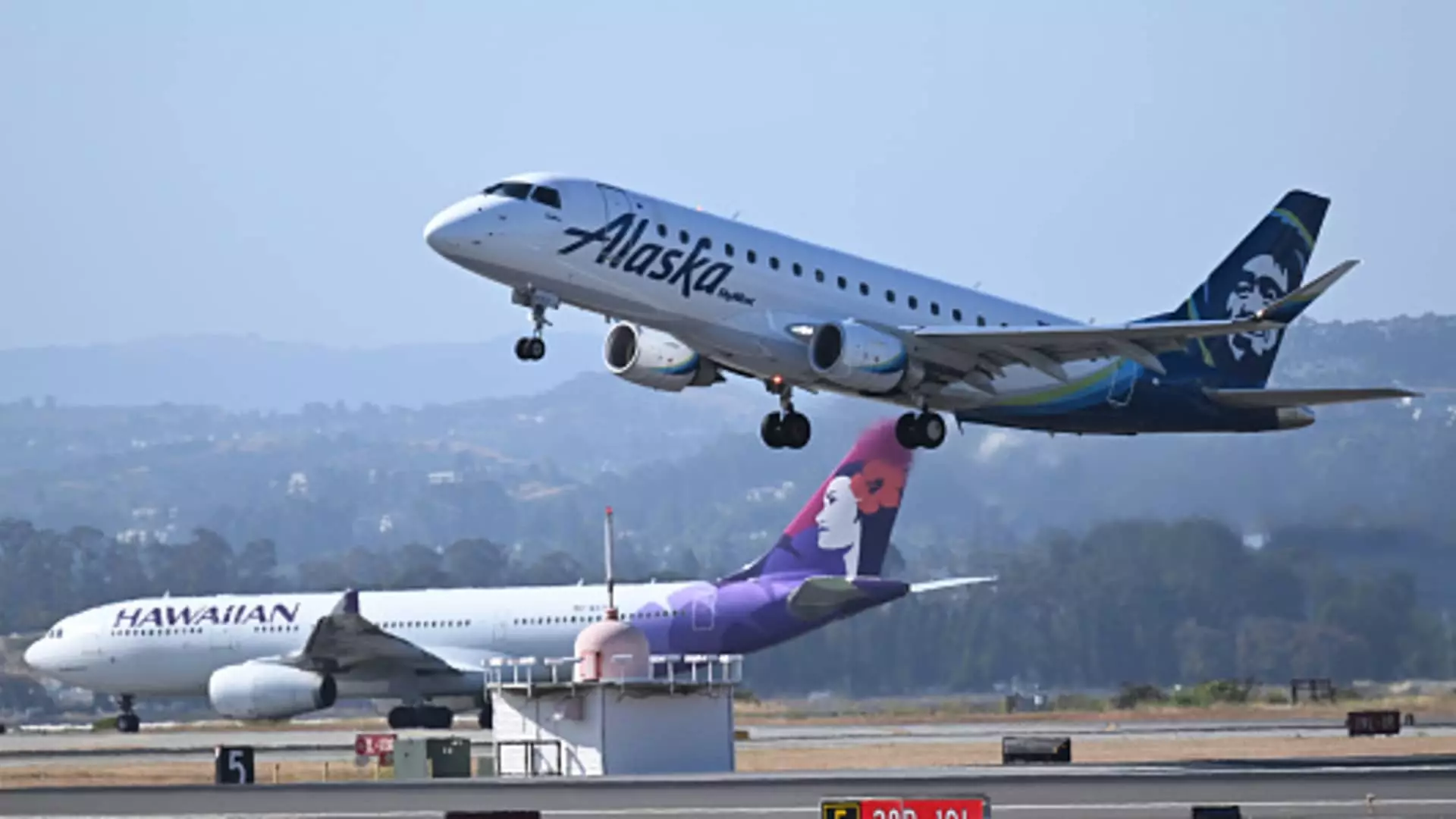Alaska Airlines has announced that their planned acquisition of Hawaiian Airlines has successfully cleared the U.S. Justice Department. This comes after the antitrust regulators completed their investigation of the $1.9 billion deal without filing a lawsuit to block the merger. While this is a significant milestone, the two carriers still need approval from the U.S. Transportation Department before the deal can be finalized. The timeline for this approval process remains unclear at this point.
If the merger goes through, it will mark the largest consolidation of U.S. carriers since Alaska’s merger with Virgin America eight years ago. This move signals a trend towards larger mergers in the airline industry, potentially reshaping the competitive landscape. The recent court rulings against other airline acquisitions, such as the blocked JetBlue Airways’ acquisition of Spirit Airlines, highlight the scrutiny that such deals are facing from regulatory authorities.
Hawaiian Airlines had encountered numerous challenges leading up to the merger announcement. Factors such as the Maui wildfires, increased competition from Southwest Airlines, and the slow recovery of travel to and from Asia post-Covid had impacted their financial performance. Despite posting net losses in most quarters since 2020, Hawaiian Airlines has seen a positive uptick in booking trends recently. This improvement is reflected in the almost 12% increase in their shares this quarter, contrasting with the overall downward trend in the airline industry.
In their initial announcement of the merger, Alaska Airlines and Hawaiian Airlines revealed their intention to maintain both brands while operating under a unified platform. The combined fleet of more than 360 airplanes is set to cover over 130 destinations. This strategic move aims to leverage the strengths of both carriers to create a more robust and competitive entity in the market.
The clearance of the merger by the U.S. Justice Department signifies a significant step forward for Alaska Airlines and Hawaiian Airlines. The successful completion of the deal would not only impact the two airlines involved but also have broader implications for the airline industry as a whole. As they navigate the final stages of regulatory approval, both carriers are gearing up for a new chapter in their operations, poised to create a stronger presence in the market.

